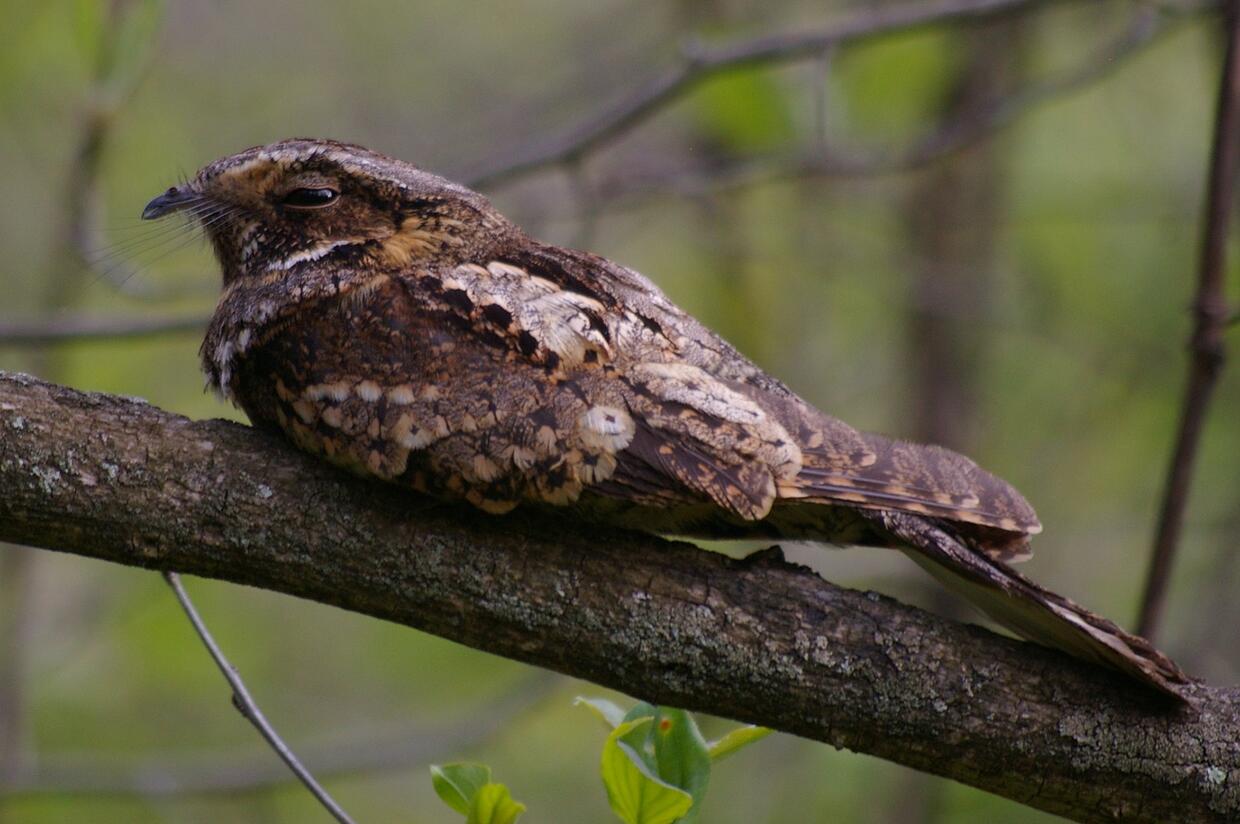MassWildlife’s Natural Heritage and Endangered Species Program conserves and protects the most vulnerable animal and plant species of Massachusetts and the habitats upon which they depend.
Image credit: John Winze
Description
Common name: Eastern whip-poor-will
Scientific name: Antrostomus vociferus
Size: 19” long with an 18” wingspan
Range: Breeds in southern Canada and the United States, generally east of the Mississippi River. Winters along the Gulf Coast from Florida through Central America.
MA conservation status: Special concern
Federal conservation status: Not listed
Fun facts
- Whip-poor-wills are nocturnal. They migrate, call, court, and feed almost exclusively at night. Their primary foods are moths and other night-flying insects.
- The whip-poor-will’s life history is tied very closely to the moon cycle. Their signature call is most intense around the full moons of May and June. They lay their eggs so that the chicks hatch ten days before a full moon; that way, the adults will have the maximum amount of moonlight to forage as they feed their chicks.
- Whip-poor-wills were once found in nearly every town in Massachusetts. Their former ubiquitous presence, coupled with their mournful whistled call associated with moonlight, made them legendary features of folklore, superstitions, and omens.
Threats and conservation
- Habitat loss is the primary threat to whip-poor-wills in Massachusetts. Habitat loss can be the result of land conversion through development, or lack of natural disturbance, such as the exclusion of fire from the landscape.
- Whip-poor-wills rely upon habitats that experience regular disturbance events, such as fire. MassWildlife partners with conservationists to mimic these disturbance events using canopy thinning and prescribed fire in areas that historically saw regular fire. MassWildlife recently worked with the New England Forestry Foundation on a restoration project at Muddy Brook WMA in Hardwick and successfully saw the return of whip-poor-wills to the site after a documented 30-year absence.
- As ground nesting birds, whip-poor-wills can be very vulnerable to the presence of dogs and cats, as well as unnaturally high populations of small predators, such as raccoons and skunks, often associated with residential development near their habitat.
- Declines in nocturnal insects may also be a contributing factor to overall decline.
- Whip-poor-wills are listed as threatened in Canada, and are now on many states’ endangered species lists.
How you can help
- Report sightings of whip-poor-wills (especially calling whip-poor-wills) to MassWildlife's Natural Heritage and Endangered Species Program (NHESP). These recorded observations help our staff to better understand the distribution and status of whip-poor-wills in Massachusetts, can inform habitat management decisions, and may offer protection under the Massachusetts Endangered Species Act. Click here for instructions to submit rare species observations.
- Keep your cats indoors and dogs on a leash. This is not only a good practice to help vulnerable wildlife, but it’s also safer and healthier for your pets.
- Support restoration efforts by state agencies and non-profit organizations to conserve and restore the fire-influenced habitats that support whip-poor-wills.
-
MassWildlife's Natural Heritage and Endangered Species Program is responsible for the conservation and protection of over 400 rare animals and plants, including Eastern whip-poor-wills. This work is primarily funded through grants and donations from supportive citizens. Support rare species conservation in Massachusetts—donate today!
